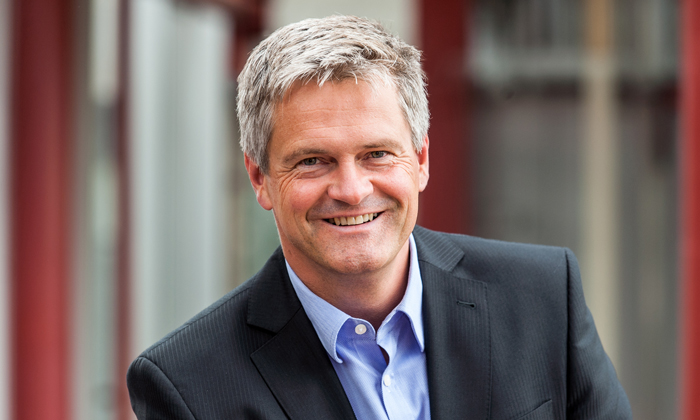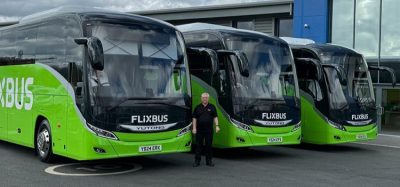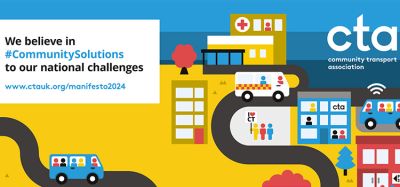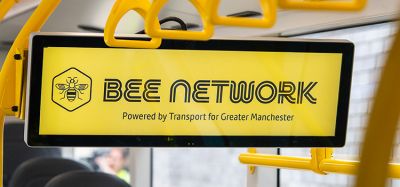An interview with Arriva CEO Manfred Rudhart
- Like
- Digg
- Del
- Tumblr
- VKontakte
- Buffer
- Love This
- Odnoklassniki
- Meneame
- Blogger
- Amazon
- Yahoo Mail
- Gmail
- AOL
- Newsvine
- HackerNews
- Evernote
- MySpace
- Mail.ru
- Viadeo
- Line
- Comments
- Yummly
- SMS
- Viber
- Telegram
- Subscribe
- Skype
- Facebook Messenger
- Kakao
- LiveJournal
- Yammer
- Edgar
- Fintel
- Mix
- Instapaper
- Copy Link
Posted: 21 September 2017 | Intelligent Transport | No comments yet
We talk to Manfred Rudhart, CEO of Arriva to discuss the company’s presence in Europe, its multi-modal offerings and transport technology…


With news that Arriva has confirmed its place as one of Europe’s largest passenger transport operators by acquiring a major share of a top ranking private bus company in Croatia, Intelligent Transport speaks to Manfred Rudhart, CEO of Arriva, to discuss the company’s presence throughout Europe, its multi-modal offerings and why it’s focusing on technology.
Congratulations on Arriva’s recent acquisition of a major share of Autotrans Group in Croatia. What are some of Arriva’s responsibilities as a public transport provider in the country and how will this new acquisition affect passengers?
Arriva has provided bus services in Croatia since 2013, following the acquisition of Veolia Transport Central Europe and its subsidiary, Panturist. Since then, we have operated a wide range of regional and long-distance services which have been largely based in the east of the country, connecting regions such as Slavonia with the country’s capital, Zagreb.
Our recent majority stake in Autotrans Group (ATG) makes us the largest private bus operator in Croatia, more than quadrupling our operations in the country. We now run over 600 buses in Croatia, up from around 125, which serve 11.5 million passengers a year and employ 1,400 staff. The geographical range of our operations has substantially increased, with routes in the tourist hotspots of Split and Dubrovnik, as well as all the country’s major islands.
Our record in Croatia speaks for itself. Since entering the country in 2013, we have expanded Croatia’s international connections with a new direct line between Zagreb and Munich. We have also introduced GoOpti, a low-cost shuttle between airports and cities which customers can book online, as well as Arriva Express which operates at Osijek Zagreb airport.
We will continue to work with our passengers and local municipalities to grow and improve our local, regional and long-distance networks. We are now considering how to partner with municipalities to bring in further environmental improvements such as vehicles with zero carbon emissions.
What does this acquisition mean for the company’s presence throughout Europe?
Arriva has a large, expanding presence across Europe, with a mix of bus and rail operations in 14 countries which includes the UK, the Netherlands, Sweden and Croatia. The acquisition of ATG builds upon a number of acquisitions and contract wins across the Continent in 2017 worth several billion euros that has been providing us with a strong platform for growth. In July for example, we were awarded a 15-year extension to the ‘Northern Lines’ rail franchise in the Netherlands, while in June we were awarded the eight-year Pågatågen rail franchise in southern Sweden.
The opportunities for further growth on the Continent are significant, particularly within Southern, Central and Eastern Europe. We see growth opportunities in countries like Spain, Poland, Slovenia and Croatia, and so where we can, we will strengthen our presence and demonstrate the value we can bring to passengers and client bodies. Particularly in terms of delivering innovation and improved services that will make public transport more convenient, accessible and easier to use. This will mean we are well-placed to seize new opportunities as markets open up.
We have also recently reported on Arriva launching a bike-sharing scheme in Slovakia. Is the company planning on expanding throughout Europe with multiple modes of transport?
Buses and trains will remain the backbone of our transport offer but what we are seeing is a growing trend towards greater multi-modality and passengers’ increasing desire for more personalised and flexible travel options. If we think we can genuinely enhance passengers’ experience by introducing car and bike-sharing schemes into the mix, then we will. In fact, we have just launched another bike-sharing scheme in Dordrecht in the Netherlands.
But where I think we can add real value, particularly given Arriva’s global experience and our diversified portfolio, is our ability to think creatively about how to address mobility solutions where demand for timetabled services may be low, or in areas that are not connected to the local public transport networks in an end-to-end way. This is where demand responsive services come into play.
Our trial of ArrivaClick in Kent, for example, is working really well. We are achieving exponential growth each week and feedback from customers is very positive. ArrivaClick puts journey planning firmly in the hands of our customers, and the vehicles we use are high quality, offering comfort and technology as standard.
And of course, one of the reasons we won the multi-modal Limburg contract in the Netherlands was our ability to develop low density solutions to help solve the transport issues faced by communities cut off from local transport networks.
Local authorities and PTAs are increasingly looking to companies like Arriva to help them find solutions to transport issues. With the range of innovations Arriva is developing we often find our expertise in high demand.
Could you tell us about any expansion plans for the company in terms of services (i.e any technological innovations the company is planning on implementing)?
It is really key for me that whatever transport service we are operating, in whichever region or country we are operating in, we fully understand our customers and what they need. Of course, there is no single, ‘typical’ Arriva customer, but one thing that I know for sure is that none of our customers want to buy a seat on our services if the ticket is overpriced or the service not good enough. That’s why when we consider expansion plans or technological innovations we focus on how we can ensure the best price and the best quality service for our customers.
This is why we launched an advanced ticketing scheme on our CrossCountry journeys allowing passengers to reduce the cost of their journey even if they cannot plan their trip in advance. Since its launch, we’ve seen our competitors follow our lead and introduce similar services.
In today’s increasingly digital era, one of the things passengers want is the ability to always be ‘on’. That means providing passengers with better, more consistent Wi-Fi connectivity so that they can work on the go.
We are working on a major UK digital trains programme that will see 400 trains and 110 stations across the UK Wi-Fi enabled between now and 2020. We are already at the forefront of this. Today, passengers using our train services operated by Chiltern Railways are benefitting from full, station-to- train connectivity, with Grand Central passengers receiving on-board Wi-Fi and infotainment services. Arriva Rail North and Arriva Train Wales passengers are next in line to benefit from our complete ‘on-the-go’ connectivity.
Our long-term vision is to extend this Wi-Fi connectivity to UK buses, so that passengers can stay connected throughout their Arriva journey as they move between train and bus.
Related topics
Business Models, Fleet Management & Maintenance, Multimodality, Ticketing & Payments, Transport Governance & Policy
Related modes
Bus & Coach
Related cities
Croatia
Related organisations
Arriva
Related people
Manfred Rudhart








